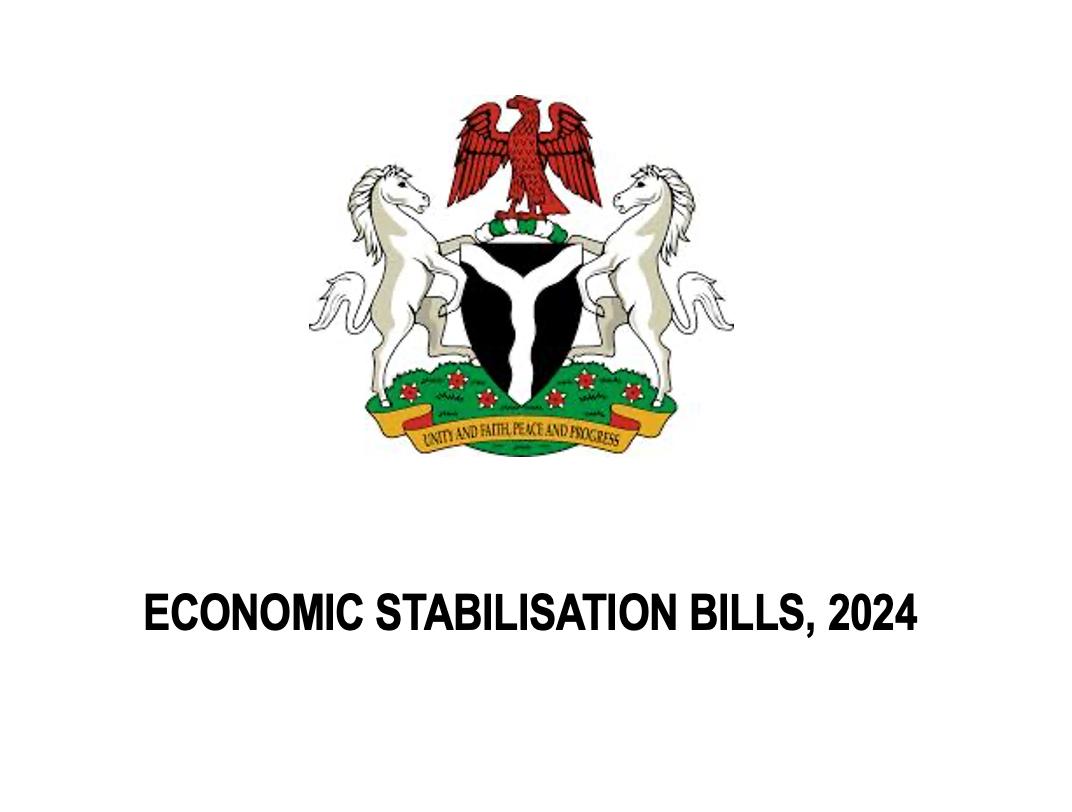OVERVIEW OF THE ECONOMIC STABILISATION BILLS
Background:
The Economic Stabilisation Bills (ESB) which have been approved by the Federal Executive Council contain some recommendations of the Presidential Fiscal Policy and Tax Reforms Committee as part of the Accelerated Stability and Advancement Plan (ASAP) of the government.
The ESB seeks to amend about 15 different tax, fiscal, and establishment laws to facilitate economic stability and set the country on the path for sustained inclusive growth.
Policy objectives:
The proposed changes are designed to achieve the following key objectives:
a) Inflation reduction and price stability
b) Complement monetary policy measures with appropriate fiscal interventions to strengthen the naira and sustain exchange rates convergence
c) Promote fiscal discipline and consolidation
d) Enhance job creation and poverty alleviation
e) Export promotion and diversification
Proposed changes:
The key changes to be made to the various laws include –
- Amendments to the income tax laws to facilitate employment opportunities for Nigerians in Nigeria within the global value chain, including the digital economy.
- Zero rated VAT and improved incentive regime to promote exports in goods, services, and intellectual property.
- Amendments to facilitate investment in the gas sector and simplify the local content requirements to ensure competitiveness.
- Reform of the foreign exchange regime to enhance the regulatory powers of the CBN, unlock more forex liquidity, strengthen the naira, and sustain rates convergence.
- Tax reliefs for private sector employers in respect of wage awards and transport subsidies provided to their employees.
- Tax relief to companies that generate incremental employment and retain such employees for a minimum of 3 years.
- Fiscal discipline and enhancement of remittances from government agencies and corporations to the Consolidated Revenue Fund of the federal government.
- Collaboration with states to suspend certain taxes on small businesses and vulnerable population such as road haulage levies and other charges on transportation of goods; business premises registration; animal trade and produce sales tax; bicycle, truck, canoe, wheelbarrow, and cart fees; shops, kiosks and market taxes and levies.
- Introduction of “Tax Identification Consolidation and Collaboration (TICC)” initiative to expand the tax base, widen the tax net, and create a level playing field for businesses.
- Provision of additional funding for the Students Loan Scheme.
Next steps:
The bills are to be transmitted to the National Assembly for passage into law.


